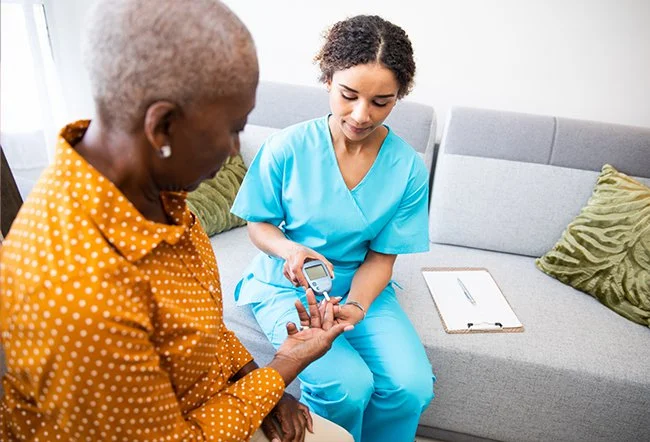Hyperglycemia is a condition characterized by high blood sugar levels. It occurs when the body is unable to produce enough insulin, or when the body is unable to properly use the insulin it produces. Hyperglycemia can be a serious condition and can lead to a number of serious health complications if left untreated.
Symptoms of Hyperglycemia
Symptoms of hyperglycemia can include increased thirst, increased urination, blurred vision, fatigue, and slow healing of cuts and bruises. In more severe cases, hyperglycemia can lead to serious complications such as ketoacidosis, which can be life-threatening.
Treatment for Hyperglycemia
Treatment for hyperglycemia typically begins with lifestyle changes such as eating a healthy diet, getting regular physical activity, and maintaining a healthy weight. Medications may also be prescribed to help control blood sugar levels.
One of the most common medications used to treat hyperglycemia is metformin. It works by decreasing the amount of glucose produced by the liver and helping the body respond better to insulin.
Another class of medications that can be used to treat hyperglycemia are sulfonylureas. These medications work by stimulating the pancreas to produce more insulin.
Another class of medication is thiazolidinediones (TZDs), which work by making the body’s cells more sensitive to insulin.
Insulin therapy can also be used to treat hyperglycemia. Insulin is a hormone that helps the body use glucose for energy. It can be taken in the form of injections or an insulin pump.
In addition to medication, regular monitoring of blood sugar levels is important for managing hyperglycemia. This can be done through self-monitoring at home using a glucose meter, or through regular visits to a healthcare provider.
Hyperglycemia can also be prevented by making lifestyle changes such as eating a healthy diet, getting regular physical activity, and maintaining a healthy weight.
It’s important to note that Hyperglycemia is a serious condition and it is important to seek medical attention if you are experiencing symptoms of hyperglycemia. With proper treatment and management, it is possible to effectively control blood sugar levels and reduce the risk of serious complications.
In summary, Hyperglycemia is a condition characterized by high blood sugar levels. Symptoms include increased thirst, increased urination, blurred vision, fatigue, and slow healing of cuts and bruises. Treatment for hyperglycemia typically begins with lifestyle changes such as eating a healthy diet, getting regular physical activity, and maintaining a healthy weight. Medications like metformin, sulfonylureas, TZDs, and insulin therapy may also be prescribed. Regular monitoring of blood sugar levels is important for managing hyperglycemia and preventing serious complications.

 Home
Home Health
Health Diet & Nutrition
Diet & Nutrition Living Well
Living Well More
More












